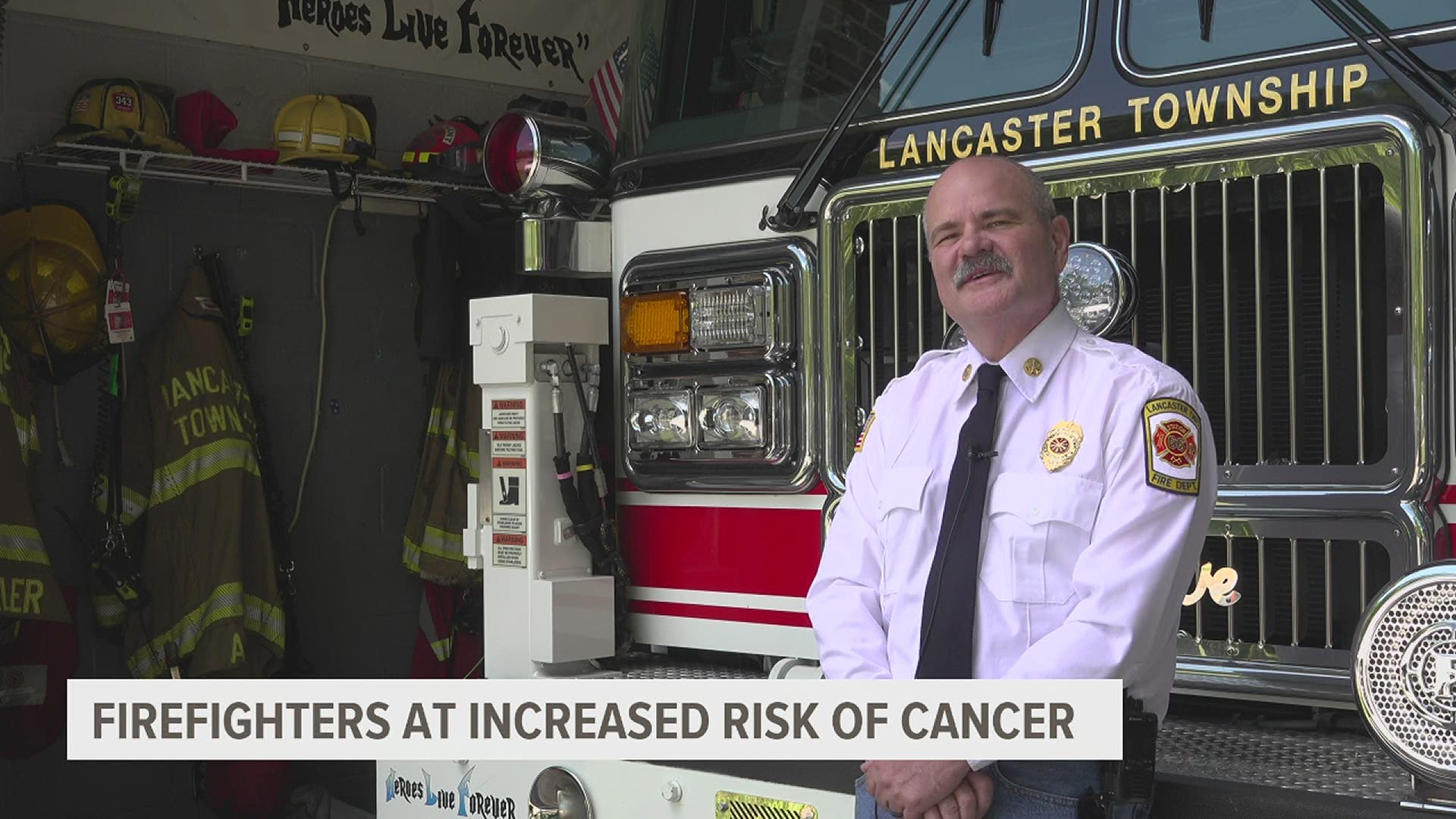LANCASTER COUNTY, Pa. — As part of Safety Stand Down Week, Pennsylvania Fire Commissioner Bruce Trego is highlighting the issues that impact the firefighting community.
Trego says firefighters are at a higher risk of developing cancer than the general population. For example: The risk of developing mesothelioma is roughly twice that of those who don't fight fires.
FOX43 spoke with a Lancaster County volunteer fire chief who recently battled the disease.
"From ducks in a storm drain to fully involved buildings or house fire... The dog stuck in chair: We never know what we're going to find," explained Chief Steve Roy, Lancaster Township's newly elected fire chief.
Looking back at a 43-year firefighting career, Roy never suspected what he would face last year.
"It came on very quickly. There weren't a lot of symptoms to it. I was actually looking for something else. I thought maybe I was drifting into type 2 diabetes," explained the firefighter.
The call came on a Friday.
"A family doctor called and said, 'you're in renal failure', and 'go to the hospital,'" stated Roy. "The following Monday, it was like, 'yep. It's multiple myeloma.'"
It's a form of blood cancer likely caused from a career spent chasing, investigating, and putting out fires.
"The only thing you hear is you have cancer," said Chief Roy, who says he knew nothing about myeloma.
Now, he's sharing a message.
"Anyone can get it. The vigilance just has to be there. There is no cancer in my family. I went back a couple generations and there isn't any cancer there," he explained. "The assumption is it was caused by agents, hazardous agents, in firefighting."
Chief Roy says the attitude around awareness is much different from when he first began chasing fires.
"Decades ago, you didn't like having the clean gear. 'Oh, this person has never been in a fire,'" he said. "The old, salty firefighter is the one with the partially melted helmet, and the dirty gear, and now, the focus has completely changed."
At Lancaster Township Fire, special soaps help to remove carcinogens from the gear. An exhaust system filters the engines' toxic diesel smoke, and firefighters wear masks more often than not.
"Most people, it probably won't happen to, but doing those things: Wearing the breathing apparatus, keeping the turnout ear clean, and not exposing yourself to hazardous materials, they're just good in general," he said.
Chief Roy is doing well. He says chemotherapy and a bone marrow transplant have given him an excellent prognosis for long-term recovery.
"I have a lot of reasons to be optimistic," he said.
During a Facebook Live, Trego shared some practices that he frequently discusses with firefighters to limit their exposure to cancer-causing materials:
- Participate in rehabilitation activities when assigned.
- Maintain hydration.
- Advise company officers when level of fatigue or exposure to heat or cold is approaching a level that could negatively affect you, your crew, or the operation.
- Remain aware of the health and safety of other members of their crew at all times.
- Discuss the importance of dealing with mental well-being and stress.

